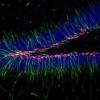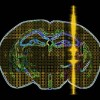Targeted nerve stimulation could yield a long-term reversal of tinnitus, a debilitating hearing impairment affecting at least 10 percent of senior citizens and up to 40 percent of military veterans, according to an article posted in the January 12 online edition of Nature. Researchers Dr. Michael Kilgard and Dr. Navzer Engineer from The University of […]








Recent Comments